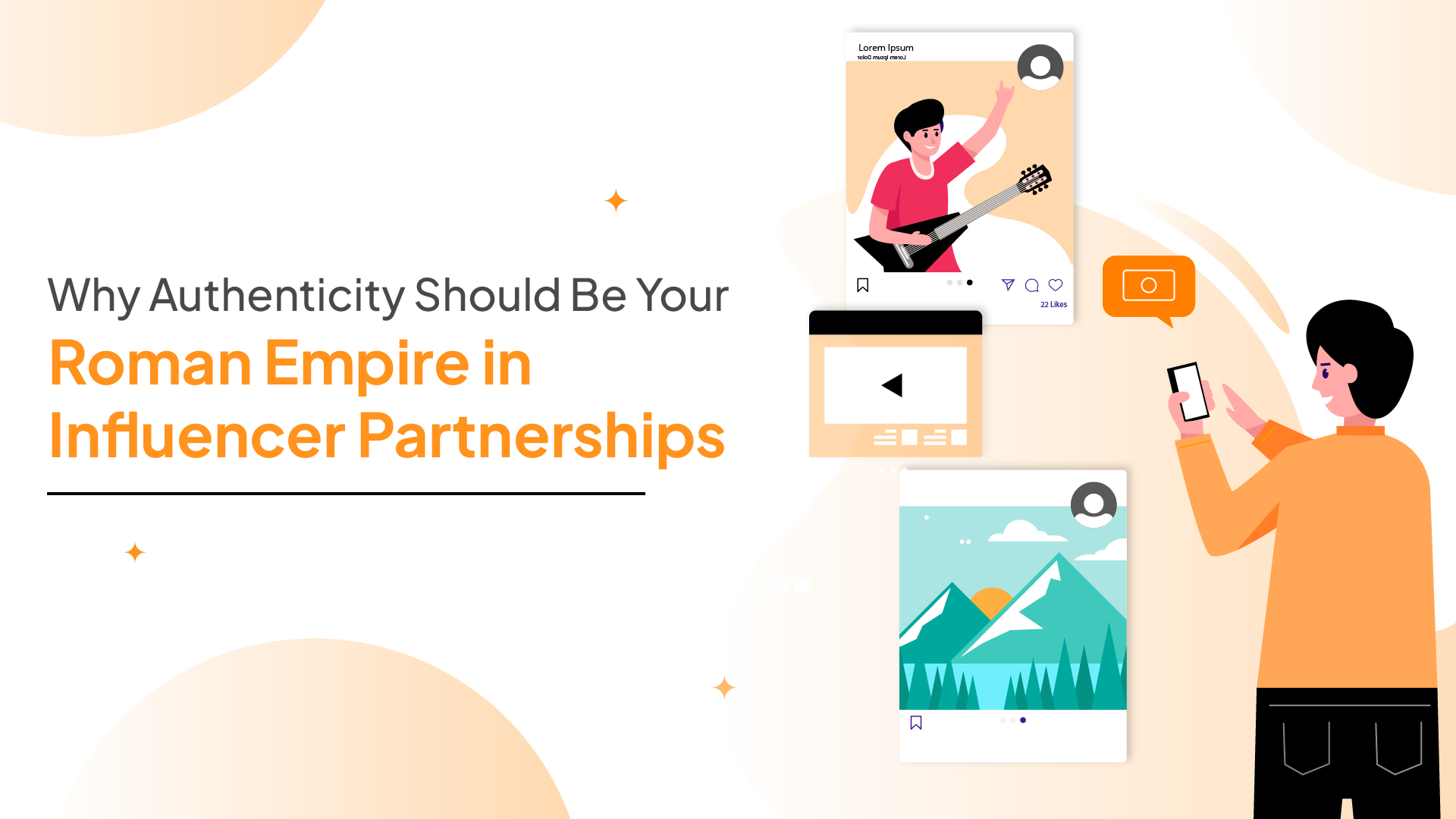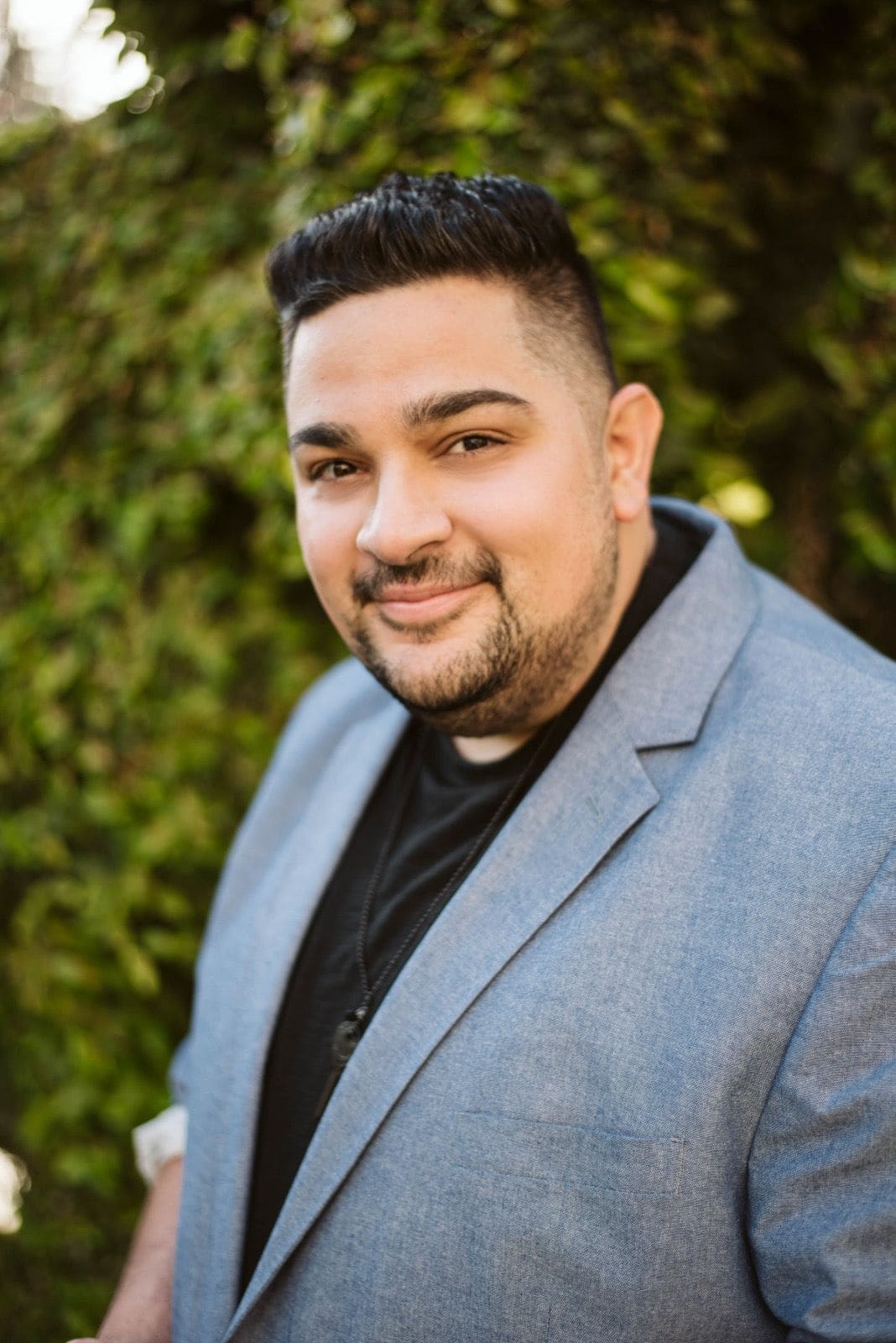

marketing technology
Why Authenticity Should Be Your Roman Empire in Influencer Partnerships
Why Authenticity Should Be Your Roman Empire in Influencer Partnerships
Back in 2016, protein shake brand Bootea tapped media personality Scott Disick to post an Instagram ad promoting its product. But what was supposed to be a simple ad turned into a marketing fail. Disick posted a picture of himself and the product with the caption:
"Here you go, at 4pm est, write the below. Caption: Keeping up with the summer workout routine with my morning @booteauk protein shake!"
He forgot to remove the brand's instructions for the ad before posting. Yikes.
But beyond Disick's slip-up, there's another reason the ad failed: It wasn't authentic.
Besides being told what to say in his caption, Disick's picture made it obvious he had never used the product before. The product wasn't open in the image he posted. And he didn't share any insights into how he's used it or how it helped him during workouts. So, the ad just came off as a cash grab.
This kind of influencer partnership wouldn't fly with consumers today. Now, brands must prioritize authenticity when it comes to collaborating with influencers.
The rise of authenticity in influencer partnerships
Authenticity has gained a lot of traction in the last few years. In fact, authentic was Merriam-Webster's Word of the Year for 2023, and with it came a substantial increase in search queries driven by "stories and conversations about AI, celebrity culture, identity and social media."
This rising interest isn't happening in a vacuum. People today want to connect and relate to others, drawing them to authenticity in the media they consume and brands they patronize. They want to see the human underneath. In fact, according to research from Asendia, “70% of American shoppers said authenticity made them more loyal to brands.”
When people don't get that, they won't hesitate to move on — “70% of consumers would switch to a competitor if they felt a retailer wasn't authentic,” according to the same study.
This has made it crucial for brands to incorporate authenticity into every aspect of their business, especially with creator partnerships. If they don't, they risk alienating their audience, who have become savvy in identifying authentic partnerships, thanks to social media.
Increased brand transparency on social media
Social media has made consumers much more aware of when something is a paid partnership. For example, when making sponsored content, creators typically tag the brand they're partnering with, dedicate a post or video to talking about a product/service and how they use it, and use #ad in the post. There's a lot more transparency now.
This is different from paid partnerships in the past, which featured public figures like celebrities or athletes. There was barely any visibility into how these partnerships were formed, the terms or the scope. Consumers would just see the figure appear on a cereal box or in a commercial without questioning it.
Because modern audiences have visibility into sponsorships via social media, they can see if a creator's brand content aligns with their usual content. So if a creator who does a lot of family-friendly content partners with a provocative brand, their audience will notice because it's not what they know that creator for; it's not authentic. And when consumers spot inauthenticity, it can turn them off from both the creator and the brand.
How brands can build authentic influencer partnerships
Brands that want to form authentic influencer partnerships should start by finding creators who could actually be their customers. Even if that is not yet the case, brands should pursue creators who would receive true value from their product or service. The creator partner doesn't need a high follower count either; micro-influencers can lead to higher engagement and more brand conversions — 35% of marketers say smaller creators are more trusted by their audiences.
For example, City Beauty, a luxury skincare brand, emphasizes uplifting women and helping them see the most beautiful version of themselves. So, when the team wanted to branch into influencer partnerships, they intentionally recruited and sent products to smaller creators who exemplified their brand values. This helped them build strong relationships with creators who trusted their brand and genuinely loved their products, and as a result, they effectively reached their target audience.
Another way to build an authentic influencer partnership is by giving creators freedom when making brand content. A common problem brands run into is trying to control every aspect of a partnership, like telling creators when to post, how to film or what to say — and the result is a Scott Disick/Bootea situation.
When brands are strict in influencer partnerships, it shows in the final product. And the creator's audience can tell; they know that's not the content the creator usually makes, so they're less likely to pay attention to it. Influencers have a platform because they understand the content their audience wants to see and know what will perform well, so brands should trust them to develop sponsored content that organically fits with their usual content.
Brands can also make it a collaborative process if they want to be involved. This could mean sharing their goals for the partnership, like promoting a new product about to launch, then working with the creator to figure out the best way to get the message across to their followers. That way, it's a two-way discussion where the creator can offer feedback that helps the content's authenticity.
Authentic creator partnerships are the ones that will be successful today. Brands can build authentic partnerships by working with influencers who could realistically be their customer and giving them the space to create sponsored content that's organic to their usual content. Once brands prioritize authenticity, they can reach and genuinely connect with their target audiences.

Ali Fazal
Ali is the VP of Marketing for GRIN, the world’s first Creator Management platform. Before joining GRIN, Ali led marketing teams at Hibob, Yotpo, and Greenhouse Software. He is passionate about increasing marginalized community representation in media and is supremely focused on building household name brands with diversity, equity, and inclusion at their foundation. He resides in New York City and is a huge fan of drag performance art, mystery novels, and craft cocktails.




